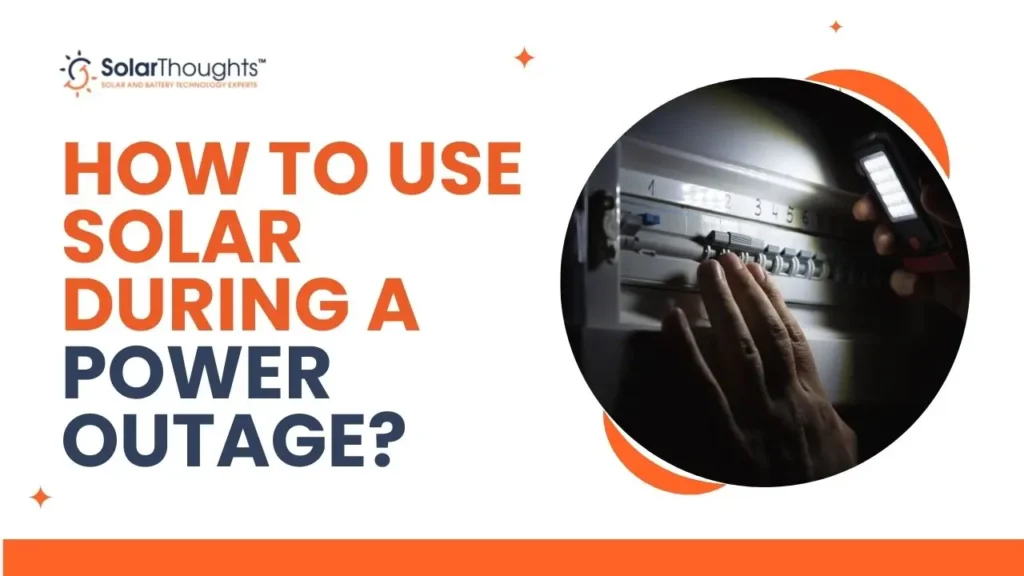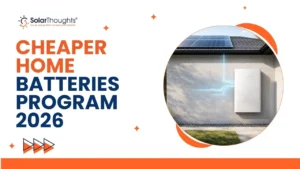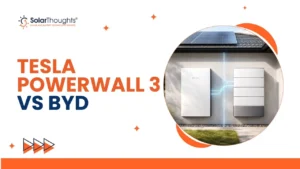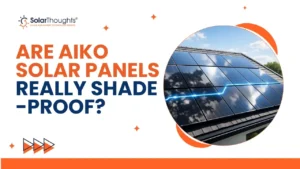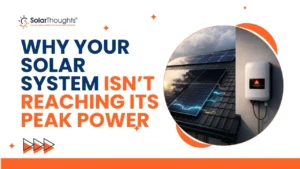The idea behind most people in Australia opting for solar could be either cutting down utility costs or contributing towards a sustainable energy transition. Now, what most people ponder before opting for solar solutions is – How to use solar during a power outage? The answer here is a little more layered. First, we need to understand the types of solar installations that can be done, after which we circle back to this question.
Imagine a devastating rain blows over your town. Your home is sporting a nice and shiny solar panel on the roof. Will your systems work when the area blacks out?
The answer is yes and no.
There are two types of solar installations.
- On-grid (Grid-connected)
These installations are connected to the main electric grid system of the local area. Often house and business owners opt for this setup so that they can sell the excess energy back to the government. Through Australia’s FTI (feed-in tariffs) they receive a nice enough credit amount for sending back surplus energy to the government.
- Off-grid (Standalone)
These are battery-backed installations. They operate independently of the electricity grid. Usually, people in remote areas where connecting to the grid is impractical or too expensive opt for standalone systems.
Read More on What makes solar energy off-grid different from on-grid?
Which solar panels won’t work in a power outage?
If you’ve opted for an on-grid solution, it won’t help you during a blackout. These systems directly rely on the local electric grid. When that grid is down, so are your services. It’s also called a grid-tied system where the panels are connected to an inverter. This inverter is connected to the main AC panel in the house and to a meter that records both the energy you use from the utility company and energy sent to the grid by your solar panels.
Now, in the event of an outage, there is a feature where the on-grid systems have an automatic off switch. This is purely to prevent the excess stored energy in your system from heading out towards the local grid. The faulty lines or people working on the issue could come in harm’s way if this happens.
This means, that when there is a blackout, you will not have energy backup if you have an on-grid setup.
How to Use Solar During a Power Outage?
Here’s where the off-grid set-up comes in handy.
Off-grid or standalone solar solutions come with a solar battery. The energy you harvest in your panels gets stored in the said battery as opposed to using the local grid. This often makes it much more expensive than grid-tied solar systems. Off-grid solar is rarely a wise investment for most homes and businesses. Additionally, you won’t have the option to draw electricity from the grid in case your solar system isn’t generating enough electricity and the energy you’ve stored has run out.
But, there are several pros to this setup as well. If you live in a remote or disaster-prone area, you will be the only house on the block with the lights on if you’ve opted for a battery-based off-grid solution. Through proper maintenance and care, your energy will be up and about with off-grid solutions.
Some may ask, how long will a solar battery last during a power outage?
- Battery size- It depends on the size of the solar battery you choose. A typical solar battery has a capacity of around 10 kilowatt-hours (kWh)
- Usage- During outages, if you rely on the battery to power heavy-duty machines like ACs or refrigerators, then it may not last as long.
With carefully prioritizing your needs, a 10 kWh battery can power a home for at least 12–24 hours without solar charging.
And, if you want a solution that’s midway between on-grid and off-grid, you can always choose a solar generator. Spending a couple of hundred bucks you might get a solar generator that can help you keep the energy running in a blackout with on-grid systems. However, they run on fossil fuels which aren’t environment friendly and hard to come across during an emergency.
Read More On What Are The Different Types Of Solar Batteries?
At the end of a power outage, we often get asked “Do I need to reset solar after power outage?”
- In a grid-tied solution, you might not need to reset your solar systems. When the lines automatically shut off during a blackout, your system shuts off too.
- In a battery-backed solution, It’s a good idea to consult your system’s user manual or installer for instructions specific to your setup. Generally, well-maintained and properly configured off-grid solar systems should handle power interruptions seamlessly without the need for frequent resets.
If you want to ensure you can use solar during a power outage, contact us today for high-quality solar panel installation in Brisbane. At SolarThoughts, our expert team provides reliable and efficient solar solutions tailored to your needs. Don’t wait—reach out now to keep your home powered!

